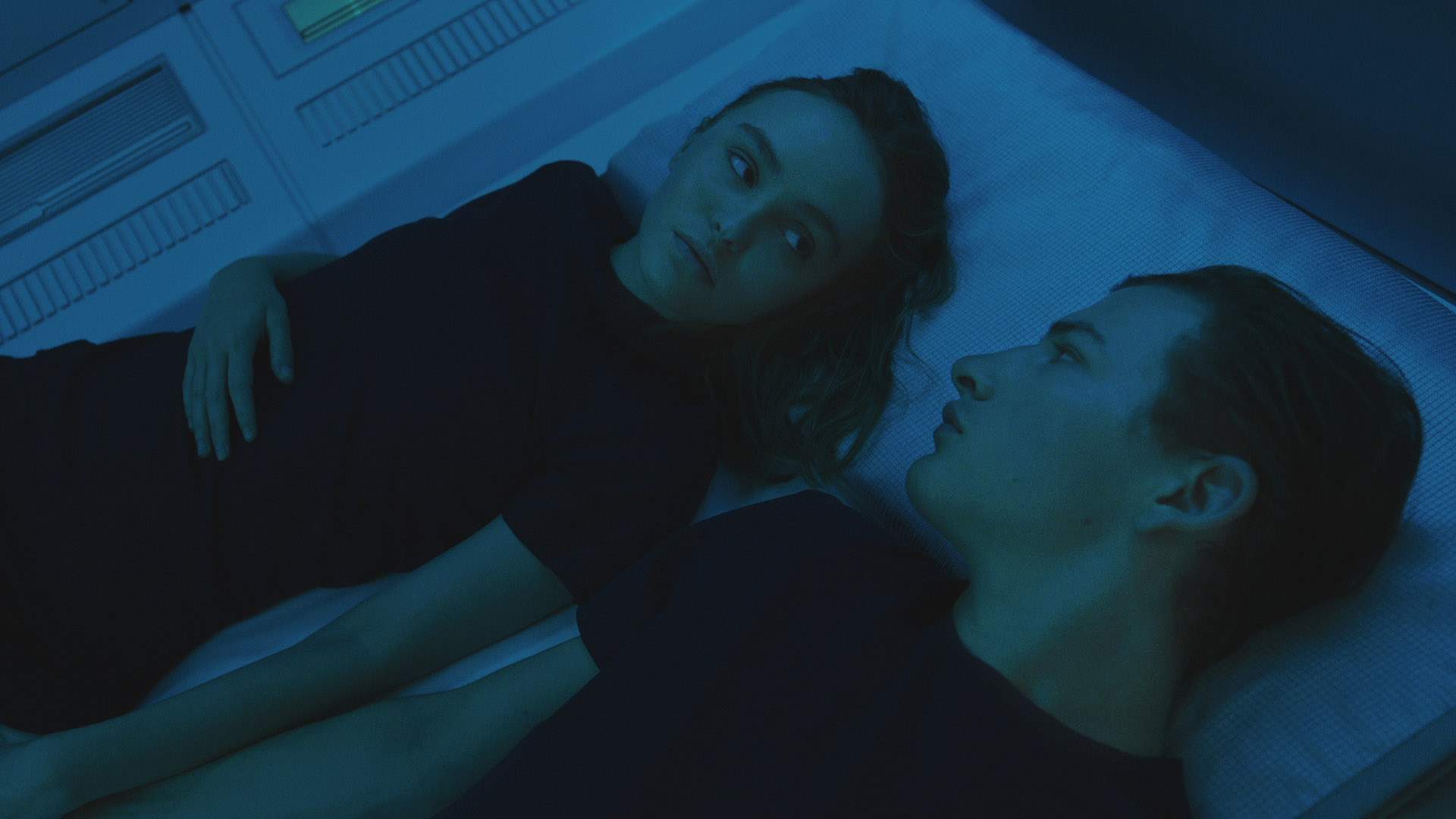Voyagers
This space-set survival-of-the-fittest thriller brings plenty of other movies to mind, but manages to still feel resonant enough.
Overview
He's an Australian treasure, he's one of Hollywood's recent villainous go-tos and he definitely isn't in Voyagers. That'd be Ben Mendelsohn, who comes to mind anyway while watching this sci-fi thriller. In a softer mode, the Rogue One and Ready Player One star could've played Colin Farrell's part here. That's not why Voyagers makes him pop into viewers' heads, though. Rather, it's because his brand of slippery menace still slinks through this space-set flick, all thanks to its most vivid performance. Should an upcoming movie ever need a fresher-faced version of Mendelsohn's latest bad guy or next morally complicated figure, Dunkirk, The Children Act and Black Mirror: Bandersnatch's Fionn Whitehead needs to be on speed dial. He channels Mendo perfectly as Zac, one of 30 test tube-bred teenagers who are rocketed into the heavens as humanity's last hope for survival. In the latter half of the 21st century, Earth is near-uninhabitable, so he's on an 86-year mission to a newly located planet. The young Humanitas crew's main purpose is to beget the next generations who'll colonise their new home — but, after learning that he's being drugged into obedience, Zac decides not to play nice.
Ten years in, when the quieter Christopher (Tye Sheridan, X-Men: Dark Phoenix) realises that the drink they all call 'blue' contains an unidentified compound, the decision is easy. First Christopher, then Zac, then the rest of their shipmates all stop sipping it and start letting their hormones pump unfettered for the first time in their intricately designed and highly controlled lives. Richard (Farrell, The Gentlemen), the lone adult and the closest thing any of the crew have ever had to a father, is suddenly treated with suspicion. Christopher and Zac begin testing boundaries, indulging desires and flouting rules, too — and realising that they're both attracted to dutiful Chief Medical Officer Sela (Lily-Rose Depp, Crisis). Then an accident changes the dynamic, with the two pals challenging each other while fighting to lead. Factions are formed, chaos ensues and the very folks entrusted with saving the species are now simply trying to outlast each other.
The fact that Whitehead's performance recalls Mendo as strongly as it does is fitting; almost everything about Voyagers brings another movie or story to mind, actually. When it comes to warring youths, Lord of the Flies, The Hunger Games and The Maze Runner all get a nod. In the space film genre, Solaris, Passengers and High Life do as well. The list goes on, increasing with each of Voyagers' foreseeable twists and turns. When the infighting starts revolving around a potentially mysterious presence, for instance, the feature nudges its audience to think about Alien and Prometheus. In spacewalking beyond the Humanitas, Gravity and The Midnight Sky get a look in (among a hefty roster of past flicks that've also stepped into the inky sky, of course). When the picture simply lingers within the spaceship's stylish but restrictive walls and ripples with unease, 2001: A Space Odyssey casts a shadow. And, in its musings on parenthood, Interstellar and Ad Astra spring to the fore.
Still, as it shuffles, jumbles and reassembles much of its bulk from recognisable parts pilfered from elsewhere, a number of interesting ideas sit at the heart of Voyagers. Yes, they've been tackled in various ways before, but they still leave an imprint. Writer/director Neil Burger has both Limitless and Divergent to his name, so he's no stranger to big-thinking science fiction flicks that contemplate intriguing ideas while also following in other footsteps. Here, he wonders not just if life has any meaning, but if there's any genuine meaning to life when a person's function in the bigger picture has already been determined from their first breath right up until their last. He also ponders exactly what humans have spent our entire existence as a species surviving: whatever external forces have come our way, or the ongoing, never-ending repercussions of our very worst impulses?
It doesn't offer up any new answers to these trains of thought, or give themes and topics like paranoia, claustrophobia, toxic masculinity, nature versus nature and free will a particularly fresh spin, but Voyagers remains resonant enough. It has a timely relevance, arriving after the globe has spent a year indoors trying to stay alive, and its picture of easy self-destruction is both undeniably blunt and unmistakably effective. Films like this keep hitting screens because we're all aware that humanity's worst enemy is itself. That's a truth we'll never stop grappling with, in fact. As a result, predictability always comes with the territory — because humans have proven such predictable creatures. Accordingly, it isn't the least bit surprising that Voyagers sticks to the familiar, and doesn't provide much of a different take on the age-old realisations at its core (even as Zac tries to lie, bully and manipulate his way to power in a manner reminiscent of recent world leaders). Nonetheless, the feature's ruminations still hit home, even amid all of its winks to other movies.
Also convincing is the film's set design, which weaponises its grey surfaces and seemingly endless corridors, transforming every corner and passage into a maze literally of humankind's own making. Voyagers' gleaming overall look wavers between sterile and slick, in another canny touch — this is a movie about finding middle ground between lives of unthinking compliance and primal hedonism, after all. And, cast-wise, Sheridan, Depp and Farrell do what they need to with their straightforward parts. Like Whitehead, Sheridan also helps sum up the movie overall, too. He already faced off against the real Mendo in Ready Player One, so he leaves viewers enjoying his calmly commanding efforts and remembering other flicks. In a picture that's both derivative and engaging, that seems to be Voyagers' chosen mission.





